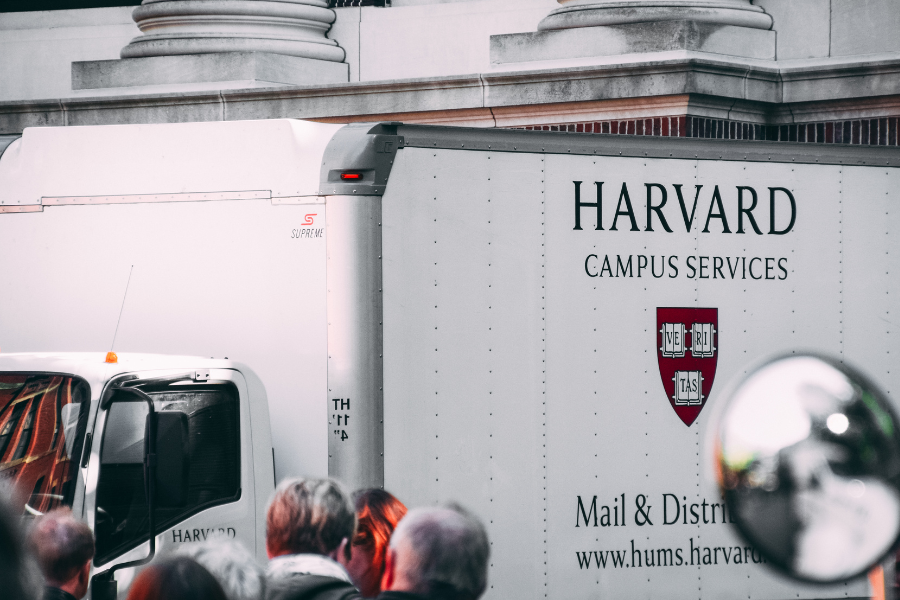A recent article in the Wall Street Journal raised an important concern; that a number of universities, including top ones, face a looming financial cliff, as changing trends, new potential governmental policies, and their own decisions combine to create a full storm for them.
But how will this impact students, and are universities actually at risk of going broke and shutting down? After all Harvard has an endowment in the billions, and assets to run for centuries. In this article we’re going to examine the claims in the Journal’s article, and how these evolving financial trends will impact the college experience for students like you. Let’s jump right in!
What’s Going on with College Finances?
To summarize the Journal’s article, and a number of other sources, colleges and universities are facing a confluence of circumstances which are going to strain their financial resources. Any one of these alone would be a challenge, but in combination will prove problematic for schools to endure. We’ll go through each challenge in turn, to explain why it’s a problem.
Investment Strategies
Colleges invest their endowments, to make more money off the money they have. Often, one of the highest paid positions at these private schools is whoever is in charge of managing these investments. The actual skill they have at it, however, can vary. Harvard in particular has made money with their investments, but less than many of their peers. Schools tend to follow fairly conservative strategies, and are very sensitive to market turndowns.
Decline in Gifts
Universities count on alumni giving to fund a significant amount of their budget, especially new developments. The promise of getting your name on a building does still hold an appeal, but as personal budgets tighten, giving to universities decreases, causing an increased reliance on other revenue streams.
The Demographic Cliff
There are only so many high school students in the US, and only so many of those go on to attend college. For a long while both these numbers rose steadily, but recently there has been a decline. As birthrates shrink, the number of students applying to college overall has shrunk as well, and many colleges are beginning to face an enrollment crunch. This is not the case for Harvard of course, nor for its peers at the top of the pyramid, but even some second and third tier schools are beginning to eye these demographic trends nervously.
Administrative Bloat
The problem for universities lies not just in income, but in expenditures. Many schools have added layers and layers of administrators, to the point where they often outnumber teaching faculty. In some cases, these are useful, as schools add counselors or student support services. The countless layers of associate deans and vice-provosts however, are of more questionable value, and a significant drain on a school’s financial resources.
New Administrative Policies
The final concern is that the new Trump administration may create even more financial hurdles for top schools, in a number of different areas. The first is in the introduction of new taxes or regulations on endowments, which they have threatened to do several times. While the feasibility of getting this regulation passed is uncertain, the mere threat of it is enough to make these universities nervous.
The second is a possible crackdown on international students. As these students often pay full tuition, they are a major revenue stream for universities, many of whom rely on tuition dollars to make ends meet. While it is uncertain what visa policies the new administration will enact, their rhetoric on immigration in general has made a number of universities nervous, and may be enough on its own to drive down application rates from international students.
Finally, a significant amount of funding for research at universities comes from governmental grants. Doing research is very expensive, both in terms of the equipment you use, and in paying for all of the hours needed to conduct it. The benefits of the research done are also sometimes not immediately apparent, but can build upon each other in the long term. This is not the kind of research corporations will pay for, and without governmental grants to foot the bill, many schools will need to cut back as well.
What Does this Mean for You?
Ok, so universities may be facing a significant budget crunch in the near future. But what does that mean for you as a student? It’s impossible to predict the exact impacts these trends will have, but there are a few things we anticipate seeing that may make life more challenging for college students.
Increased Tuition Costs
So this isn’t a majorly exciting prediction; tuition costs have increased a lot, and all the signs point to that trend continuing. There could be a significant increase however if schools are forced to turn to tuition to raise operating costs. Instead of the handful of percentage points of gain per year we have been seeing, costs could jump by thousands of dollars.
A corollary to this is a drop in financial aid. This is often the first thing schools cut when they need to tighten their budgets, as every dollar spent on financial aid is one they don’t receive in the form of tuition. This may mean students are expected to take out more loans, or that students intending to apply will need to focus on schools which have large enough endowments to weather this storm while still offering scholarships.
Loss of Research Opportunities
Research, as mentioned above, is really expensive to conduct. While professors will still undertake projects, their number, scope, and scale will decrease commensurate to the amount of funding they acquire. A loss of government funding for these research projects will also lead to a loss of places for students on them, as professors need to stretch their budgets and don’t have the resources to train new undergrads in proper lab technique.
Uncertainty for International Students
This is one where we can’t predict exactly what will happen, save that it will cause significant headaches for everyone involved. We do not know the extent of how the visa process will be altered, and whether or not international students will still be able to continue attending schools they are already at, much less the impact for new applicants. We will continue to update you as new information comes to light, and will publish articles with the best advice we have.
Possible School Closures
This is a more remote concern, and not one we foresee being immediately relevant. As demographics continue to shift however, there is a significant chance that a number of schools will face closure due to budgetary and enrollment shortfalls. This is most likely to impact smaller and less popular private universities, the ones which are not as famous as the Ivy League or their peers.These schools tend to rely on tuition funds to keep the lights on, and a drop in enrollment can send them into a spiral.
This is also likely to be an issue for many of the smaller liberal arts colleges. While some of these do have large endowments, most have far smaller funding pools than their research university peers. These may act as an indicator for a broader collapse to come in the system, and are likely to be among the first schools to fail.
Can Universities Do Anything?
We are, of course, not in control of any actual universities, but we do see a couple of things they could do immediately to at least lessen the impacts of the coming financial issues. There is not much they can do when it comes to governmental policies, but they can still take actions that make their current state more feasible in the long term. We do not anticipate them taking our advice, but here is how colleges could restabilize their finances.
First, and most importantly, they need to cut administrative bloat. There are some positions where administrative support staff are crucial and appreciated, such as student support services. The endless parade of deans and chancellors and provosts, however, is probably not the best use of limited resources.
Next, mergers and consortiums may be in order. We’re not saying that Harvard and Yale should form a single entity (Yarvard?), but that many small liberal arts colleges would benefit from pooling their resources together. Merging administrations could allow for the cutting of overlapping positions, while increasing the number of courses and options available to students.
Finally, colleges should reconsider their investment strategies, and how they choose to manage their money. Those who invest money do usually claim that paying money managers high salaries is a wise investment, but they aren’t quite neutral arbiters in that regard. Colleges should, however, seek to maximize returns on the endowments they do have, in order to become self-sustaining, and no longer subject to the shifting needs of tuition increases and public demand.
Berea College is an excellent example of how this can work, using their own endowment to be completely tuition free for all students. While most colleges will not follow their example, we do believe many could learn valuable lessons from how Berea operates.
Final Thoughts
Colleges are likely not at risk of imminent financial collapse, but there are a number of factors brewing which make their financial futures far more unsteady than they would like. These factors are also likely to impact students seeking to attend these colleges as well, though the full extent of this impact is still difficult to tell.
Colleges often feel like a world unto themselves, but they are here with us as well, subject to the same market forces and regulations that govern everything else in the modern world. As these forces impact colleges, and colleges are forced to react, the impacts on students can be far reaching. Our goal at Ivy Scholars is to help students keep abreast of these changes, so that they can manage the always arduous process of admissions. To learn more about how we can help you with your own college journey, schedule a free consultation today. We’ve helped hundreds of students navigate this complex landscape, and are always happy to hear from you.








